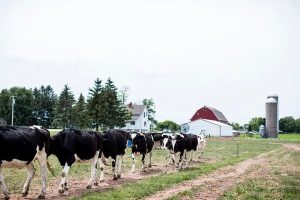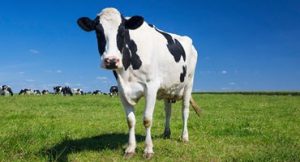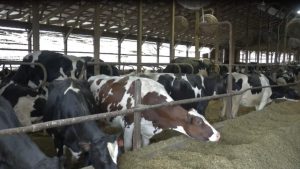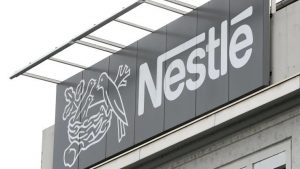
A growing baby formula shortage has retailers like Target and Walmart limiting purchases, leaving parents to make multiple trips just to confront empty shelves in the wake of a recent recall by Abbott Laboratories.
In February, Abbott recalled powdered formula manufactured at a Michigan plant after several babies fell ill with bacterial infections and two died, according to the U.S. Food and Drug Administration. The recall compounded existing inventory troubles due to supply chain snarls and ingredient shortages brought on by the pandemic. Now, families in some parts of the country are finding formula tough to come by.
“We know that this recall has further exacerbated an industry-wide infant formula supply shortage. We are doing everything we can to address it,” Abbott told The Washington Post in a statement, including ramping up production of Similac, air-freighting in product from Europe and working with health-care providers to identify alternative formulas.
Walgreens and CVS are both limiting formula purchases to three per transaction online or in stores, the companies said, while Target said it is limiting online formula purchases to four units per item. Costco representatives declined to comment, but a two-pack for one brand being sold on its website was capped at two per order.
“Due to increased demand and various supplier challenges, infant and toddler formulas are seeing constraint across the country,” Scott Goldberg, director of corporate communications at Walgreens Boots Alliance, said in an email. “Similar to other retailers, we put into effect purchase limits of three per transaction on all infant and toddler formula to help improve inventory. We continue to work diligently with our supplier partners to best meet customer demands.”
Walmart and Kroger were also rationing some formula purchases as of Tuesday, the Wall Street Journal reported. Roughly 31 percent of formula products were out of stock across the country the week of April 3, according to data from Datasembly, a retail software company.
What started as a spotty shortage in 2021 has grown into a nationwide problem, according to Neil Saunders, managing director of GlobalData Retail in New York.
“Baby formula is still available in some shops, but supply is very patchy and out of stocks arise very quickly,” Saunders said in an email. “Unfortunately, shortages encourage some people to buy in bulk and hoard, which further contributes to availability issues. This is why some retailers have put in place quantity restrictions.”
Consumers are having to “shop around” for formula, Saunders said, searching multiple locations and routinely encountering empty shelves and out-of-stock messages online.
As this is an “essential product,” Saunders added. “There is a lot of worry among parents.”
Emily Pyeatt, 22, recently went to eight stores in search of formula for her 8-month-old. Ever since the recall forced her to change brands, she’s been burning increasing amounts of time and gas money trying to track down formula.
“This is the scariest thing I’ve ever experienced,” she posted on Facebook afterward. “How are we supposed to feed our children when there’s NO FORMULA ON THE SHELVES!?”
Down to her last three cans, Pyeatt said she has been easing her son onto more solid food to help the formula last longer. Store managers, trying to be helpful, have suggested she breastfeed, or switch to whole milk or other alternatives that aren’t safe for an infant her son’s age. She’d be breastfeeding if she could, she said, but like many women she struggled to produce enough.
“It was a very heartbreaking decision to stop, and I think it’s upsetting for someone to say that,” Pyeatt said. “I pray for the women who have babies who are not old enough for solid food.”
The shortage is heaping financial burden upon families at a time when households are already grappling with the highest inflation surge in four decades. Baby formula, the only viable substitute for breast milk, is expensive, with the average cost of popular brands well exceeding $1,000 in the infant’s first year, according to the U.S. surgeon general.
“As parents are navigating the extraordinary stress of this recall, we are particularly concerned about risky practices that can jeopardize an infant’s growth and development,” Brian Dittmeier, senior director of public policy at the National WIC Association, said in an email.
Before switching formulas, parents should consult with their child’s health-care provider. Diluting formula, making formula at home or substituting cow’s milk for breast milk is “not nutritionally comparable with breast milk or infant formula,” Dittmeier cautioned, and could cause nutrient deficiencies that can have a “pronounced impact on an infant’s growth and development.”
Parents who are struggling to find formula can contact their local WIC agencies and food banks for help locating it in their communities, Dittmeier said. But tools to track availability haven’t been working well in recent weeks, and “the ripple effects of the shortages across manufacturers and state lines” probably will continue to weigh on families in the near future.
This formula shortage is so scary. I cant find my sons milk anywhere
— Mamí? (@daniella_ayee) April 12, 2022
“This formula shortage is so scary. I [can’t] find my [son’s] milk anywhere,” Danielle Arzola, 27, posted Tuesday on Twitter.
When Arzola tried to switch formula brands due to the shortage, her 6-month-old got sick. Now she finds herself driving all over town and even buying formula from people in other states to find the brand he does better with.
“I have enough to hold him off for a week or two, but in the meantime I’m still looking,” she told The Post.
The February recall applies to certain formulas under the Similac, Alimentum and EleCare labels, in which the first two digits of the container code are 22 or 37; the code contains K8, SH or Z2; and has an expiration date of April 1 or later. Packages that don’t meet all of those conditions are not affected, according to the company and the FDA.
The affected products have already been pulled from shelves, but if you are worried you might have purchased them before then, search for the lot number on the formula container on the Abbott website.
Reports of illness tied to the bad batches of formula surfaced five months before the recall was initiated, according to a letter sent last week to the FDA by Sens. Robert P. Casey Jr. (D-Pa.) and Sherrod Brown (D-Ohio).
“For nearly half a year, potentially contaminated product remained on store shelves and in baby bottles, subjecting unsuspecting families to unacceptable risk,” the senators wrote, adding that “the prospect of finding a new formula as a result of the recall has posed a logistical, financial and emotional burden for families across the U.S.”























